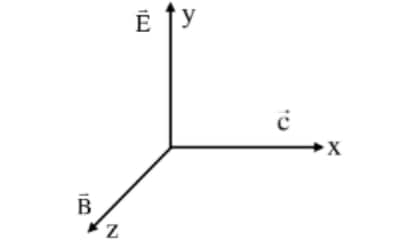Amity University-Noida B.Tech Admissions 2026
Among top 100 Universities Globally in the Times Higher Education (THE) Interdisciplinary Science Rankings 2026
Most Repeated Questions in JEE Mains: JEE Mains is one of the toughest tests for students who want to get admission to engineering institutions in India. Analyzing different past year papers of JEE Main, there is always a tendency for some questions and topics to be repeated over and over again. This article focuses on the most repeated questions in JEE Mains, including those with answers, to assist aspirants in effective preparation.
If your payment fails, first check whether the amount has been debited. Wait for confirmation updates before retrying. If needed, use a different payment method to ensure your corrections are saved.
This Story also Contains

This article on the most repetitive questions in JEE Mains is sorted out into three parts: Physics, Chemistry, and Math. By analyzing the most repeated questions in JEE Mains Physics, Chemistry, and Maths, students can streamline their revision and practice. JEE Main 2026 registration was open on 31 October and ended on 27 November 2025, and Session 1 will be held from 21 to 30 January 2026. This year, new features include dark mode, adjustable font size, and screen zoom options.
The results for JEE Main 2026 Session 1 have been announced. Students who are unsure about the counselling process, cut-offs, or suitable engineering college options can seek guidance. Our expert team is ready to guide you every step of the way. Book your FREE counselling session by filling out the Google Form.
Among top 100 Universities Globally in the Times Higher Education (THE) Interdisciplinary Science Rankings 2026
Last Date to Apply: 28th Feb | Ranked #43 among Engineering colleges in India by NIRF | Highest Package 1.3 CR , 100% Placements
In JEE Mains, Physics questions often come from a few important topics that are repeated every year. Knowing these topics helps you focus your preparation and score better. Here, the most repeated Physics questions that you should definitely practise before the exam and prepare according to JEE Main Latest Syllabus 2026 are given:
| Most Repeated Questions in JEE Mains PDF Free Download |
| Projectile Motion Questions PDF Download |
| Nature of Electromagnetic Waves Questions PDF Download |
Some of the JEE Mains most repeated questions of Physics are given below, students can also refer JEE Main 2026 Sample Paper:
Question: A plane electromagnetic wave propagates along the +x direction in free space. The components of the electric field, E→ and magnetic field, B→ vectors associated with the wave in Cartesian frame are :
(1) Ey, Bx
(2) Ey,Bz
(3) Ex,By
(4) Ez, By
Solution:

Direction of propagation =E→×B→
E→y,B→z,c→x
E^×B^=j^×k^=i^=c^
Hence, the answer is the option (2).
Question: Given below are two statements :
Statement I: For transmitting a signal, the size of the antenna (I) should be comparable to the wavelength of the signal (at least l=λ4 in dimension)
Statement II: In amplitude modulation, the amplitude of the carrier wave remains constant (unchanged).
In the light of the above statements, choose the most appropriate answer from the options given below.
(1) Statement I is correct but Statement II is incorrect
(2) Both Statement I and Statement II are correct
(3) Statement I is incorrect but Statement II is correct
(4) Both Statement I and Statement II are incorrect
Solution:
Statement 1 is correct.
In Modulation Amplitude of the carrier wave is increased.
Statement 2 is incorrect, in amplitude modulation amplitude of the wave is varied.
Hence, the answer is the option (1).
Chemistry includes conceptual as well as numerical questions. Among the most repeated questions in JEE Mains Chemistry, Organic and Physical Chemistry dominate.The most repeated questions in JEE Mains chemistry help students to score good marks. Alsoo they can refer JEE Main 2026 - A complete preparation strategy
Question:
Recognized as Institute of Eminence by Govt. of India | NAAC ‘A++’ Grade | Upto 75% Scholarships
98% Placement Record | Highest CTC 81.25 LPA | NAAC A++ Accredited | Ranked #62 in India by NIRF Ranking 2025 | JEE & JET Scores Accepted
Some of the most asked questions in JEE Mains Chemistry are given below:
Question: Concentrated nitric acid is labelled as 75% by mass. The volume in mL of the solution which contains 30 g of nitric acid is ____ . Given : Density of nitric acid solution is 1.25 g/mL
(1) 45
(2) 55
(3) 32
(4) 40
Solution :
75% by mass means :
∵75gHNO3 in 100 g solution.
∴30gHNO3 in 10075×30 g solution.
msolution =100×3075 g
∵Vsol =msol dsol =100×3075×1.25=32 mL
Hence, the correct answer is option (3).
Question:
Given below are two statements :
Statement I : CrO3 is a stronger oxidizing agent than MoO3
Statement II : Cr(VI) is more stable than Mo(VI)
In the light of the above statements, choose the correct answer from the options given below
(1) Statement I is false but Statement II is true
(2) Statement I is true but Statement II is false
(3) Both Statement I and Statement II are true
(4) Both Statement I and Statement II are false
Solution:
Statement-I is true but statement II is false.
Cr(VI) is less stable than Mo(VI)
Stability : Cr6+<Mo6+
Hence, CrO3 easily reduce into Cr−3 as compared to MoO3 and show stronger oxidizing nature.
Hence, the correct answer is option (2).
Mathematics questions often involve direct applications of formulas and standard problem-solving techniques. Here are the JEE Mains most repeated questions of Maths. The most asked questions in JEE Mains of maths are predominantly involved in formulas and standard techniques, making them critical for scoring well.
Some Important Questions from JEE Main Mathematics are given below:
Question: If in the expansion of (1+x)p(1−x)q, the coefficients of x and x2 are 1 and -2 , respectively, then p2+q2 is equal to:
(1) 8
(2) 18
(3) 13
(4) 1
Solution:
(1+x)p(1−x)q=(pC0+pC1x+pC2x2+…)(qC0−qC1x+qC2x2−…)
To find the coefficient of x, we consider terms whose degrees add up to 1 :
Coefficient of x=pC0⋅(−qC1)+pC1⋅qC0=−qC1+pC1=1
Given that p−q=1, so:
p=q+1
Now for the coefficient of x2, the relevant terms are:
Coefficient of x2=pC0⋅qC2−pC1⋅qC1+pC2⋅qC0=−2
Now express binomial coefficients using formulas:
qC2=q(q−1)2,pC2=p(p−1)2,pC1=p,qC1=q
Substitute these into the expression:
q(q−1)2−pq+p(p−1)2=−2
Multiply the entire equation by 2 to eliminate denominators:
q(q−1)−2pq+p(p−1)=−4
q2−q−2pq+p2−p=−4
Now substitute p=q+1 into the equation:
q2−q−2q(q+1)+(q+1)2−(q+1)=−4
Expand:
q2−q−2q2−2q+q2+2q+1−q−1=−4
Simplify:
(q2−2q2+q2)+(−q−2q+2q−q)+(1−1)=−4⇒0−2q=−4⇒q=2
Now:
p=q+1=3
Therefore:
p2+q2=32+22=9+4=13
Hence, the correct answer is option (3).
Question: ∫0π/4cos2xsin2x(cos3x+sin3x)2dx is equal to
(1) 1/12
(2) 1/9
(3) 1/6
(4) 1/3
Solution:
∫0π/4tan2xsec2xdx(1+tan3x)2dx
Let 1+tan3x=ttan2xsec2xdx=dt313∫12dtt2=16
Hence, the correct answer is Option 3.
By focusing on the most repeated questions in JEE Mains physics, chemistry, and maths, aspirants can significantly improve their chances of scoring well in the exam.
High Probability of Appearance:
Questions from certain chapters or concepts tend to appear consistently every year. For example, in Physics, topics like Electrostatics, Modern Physics, and Mechanics often have recurring questions. Similarly, in Chemistry, Chemical Bonding, Coordination Compounds, and Organic Reactions are frequently tested. By focusing on these repeated topics, candidates increase their chances of attempting questions they are already familiar with, reducing uncertainty during the exam.
Efficient Time Management:
When you practice repeated questions, you solve questions in less time. This improves speed and accuracy, which are critical in a time-bound exam like JEE Main. Attempting familiar questions first during the exam can help you secure easy marks quickly, allowing more time for tougher problems.
Better Understanding of Question Patterns:
Repeated questions help candidates recognize patterns of question and trends in the exam. Like, the way a particular concept is framed in multiple-choice questions, or the typical twists applied to numerical problems, becomes predictable with practice. This pattern recognition reduces the chances of errors and builds confidence during the exam.
Smart Revision Strategy:
Focusing on repeated questions allows for revision of selected section. Instead of attempting all topics equally, candidates can prioritize high-yield areas that historically appear in the exam. This strategy ensures that the limited revision time is used efficiently and helps in retaining important formulas, concepts, and shortcuts.
Boosts Confidence and Reduces Exam Stress:
Solving repeated questions from previous years provides a sense of confidence in our mind. Candidates feel more prepared and confident, knowing that they have already practiced questions that are likely to appear. This reduces exam anxiety and helps maintain a calm and focused mindset on the day of the exam.
Also read
Frequently Asked Questions (FAQs)
Practicing these questions covers topics with high weightage, helps in understanding question patterns and difficulty levels, improves speed and accuracy, and boosts confidence, as similar questions often appear in subsequent exams.
Repeated questions are rarely identical. Usually, the underlying concept and question structure are repeated, but numbers, coefficients, or contexts may change.
Though the focus on the majority of the frequently asked questions gives an advantage, one needs to aim at utilizing all his/her potential, acquirements, and notions, as well as rehearse consistently for all the questions that might be included in the final check.
On Question asked by student community
decent chances actually as home state quota seats are 50%. allotments will depend on the JEE rank and not percentile though. in 2025, for female supernumerary it closed at 9286 rank while for open gen it closed at 5573.
So, would advise to use this tool to check the probable
yes you will. Ususally the return is within 7 days i it has failed at the gateway level which it seems to be. Please wait. You will get the money back
Slim chances as in 2025 the closing rank was 118 for SPA Delhi for B.Arch. You will need to wait for the rank list to come in April before getting a better picture. Please check https://engineering.careers360.com/jee-main-college-predictor for the predictions.
Check out https://engineering.careers360.com/jee-main-rank-predictor to know the probable rank
Hey Abhinav!
You can start your JEE Preparation with ICSE. You can check How to Prepare for JEE Main 2026?- Study Plan and start you preparation.
An 87.12% in JEE is good. To get admission to VIT, you'll need to take the VITEEE. You can apply for VITEEE if you meet the eligibility criteria for class 12. Your JEE score is not required for this process. Admission to VIT will be based on your VITEEE score.
Among top 100 Universities Globally in the Times Higher Education (THE) Interdisciplinary Science Rankings 2026
Recognized as Institute of Eminence by Govt. of India | NAAC ‘A++’ Grade | Upto 75% Scholarships
70th University Ranked by NIRF | 80th Engineering Rank by NIRF | Accredited by NBA and NAAC A+
Last Date to Apply: 28th Feb | Ranked #43 among Engineering colleges in India by NIRF | Highest Package 1.3 CR , 100% Placements
Highest CTC 44.14 LPA | UGC Approved | 1600+ Recruiters | 100% Placement
NAAC A++ Grade | Recognized as Category-1 Deemed to be University by UGC | 41,000 + Alumni Imprints Globally